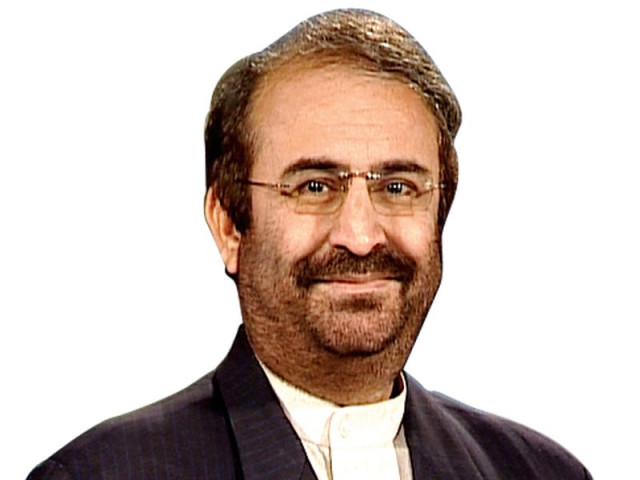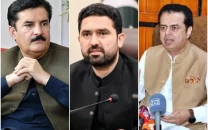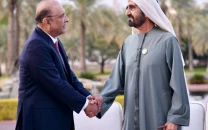US, China envoy visits lay ground for stalled peace talks
Raheel Sharif’s visit to US can impact Ghani’s participation in ‘Heart of Asia’

Raheel Sharif’s visit to US can impact Ghani’s participation in ‘Heart of Asia’.
On Friday, United Nations Assistance Mission in Afghanistan (UNAMA) head Nicholas Haysom met senior Pakistani officials in Islamabad and discussed “prospects for wider regional cooperation,” said a UNAMA Kabul official. The official added that Haysom met Pakistan’s Foreign Affairs Adviser Sartaj Aziz, National Security Adviser Lt-Gen (retd) Nasir Janjua, Foreign Secretary Aizaz Chaudhry and Chief of General Staff Lt-Gen Zubair Hayat.
Haysom’s visit came days after Chinese Ambassador Deng Xijun and US Acting Special Representative on Afghanistan and Pakistan Laurel Miller had discussions with Pakistani officials on ways to push for peace in Afghanistan.
Both China and the US had been actively involved in the Pakistan-brokered ‘Murree Peace Process’ in early July. The two nations are now discussing options in Islamabad and Kabul to end the current deadlock, and are also making efforts to remove misunderstandings between Pakistan and Afghanistan — a must for the revival of negotiations.
After discussions with the Pakistani government and military, the Chinese envoy travelled to Kabul and deliberated on the peace process with senior Afghan leaders there.
“The People’s Republic of China desires resumption of peace negotiations and is prepared for required cooperation,” he said in his meeting with Afghan Foreign Minister Salahuddin Rabbani. According to the ministry, the Chinese envoy also emphasised “China doesn’t want any kind of problem between the two neighbouring countries, Afghanistan and Pakistan.”
Xijun, who was confirmed as China’s special envoy for Afghanistan last week, told The Express Tribune he would visit the region again after a month. This is indicative of China’s more active push for peace. In his interview, Xijun remarked there was an understanding between China and the US about the revival of direct talks between the Afghan government and the Taliban. This understanding can help mount pressure on Kabul to show seriousness towards a political solution to the problem.
All eyes on Raheel’s US sojourn
Afghan officials told The Express Tribune they are looking into the outcome of the upcoming visit of Chief of Army Staff General Raheel Sharif to the US. They believe “positive results” are key to improved relations between Pakistan and Afghanistan. A source said “visible improvement in relations” could pave the way for the participation of Afghan President Ashraf Ghani in the Heart of Asia - Istanbul Process Ministerial Conference scheduled to be held in Islamabad on December 8. Ghani attended the last ministerial conference in Beijing in October 2014. It is widely believed revival of the stalled Afghan peace process would remain one of the key issues during Raheel’s visit to the US.
As all major players have stepped up efforts to work for a political solution, Afghan leaders will have to develop consensus on the process. Recent statements from senior leaders referred to talks with the Taliban as a “waste of time”. This should be snubbed to mitigate the suffering of the Afghan public.
The few leaders not interested in peace are ignoring the fast-growing insecurity and problems faced by the people, especially the youth. They will have to shift their focus from their permanent quest for foreign military support to political means. This is the only option left as NATO has not been able to solve the problem in 15 years.
Meanwhile, Afghan media continues to blame the national unity government for its failure to honour campaign pledges; in particular security and reconciliation with the Taliban, their “armed opponents”. The rulers are also under fire for political wrangling over almost all issues, slowing all decision making. Parliamentary elections that should have been held earlier in 2015 have also been postponed.
“Government officials who made lofty promises to the people during election campaigns — that they would improve the quality of their lives and restore security — have forgotten everything because of internal differences,” read Afghan newspaper Cheragh Daily’s editorial comments this week.
Published in The Express Tribune, November 14th, 2015.



















COMMENTS
Comments are moderated and generally will be posted if they are on-topic and not abusive.
For more information, please see our Comments FAQ